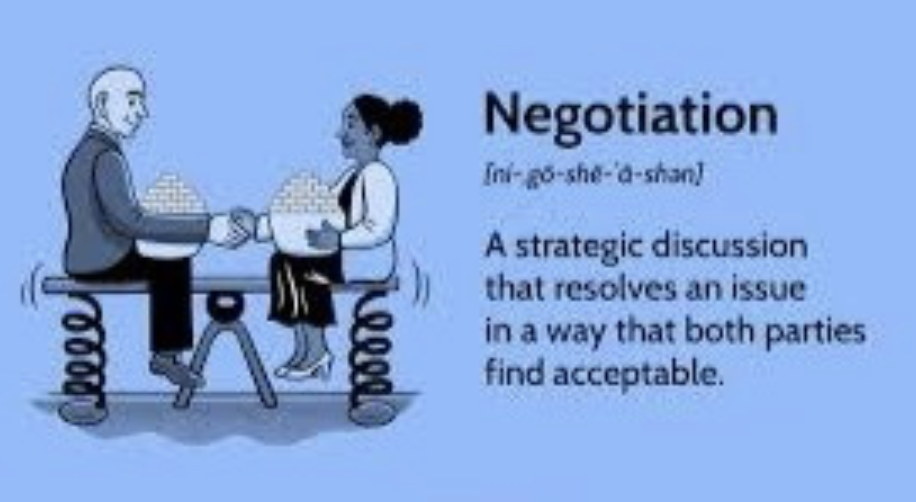LAWYERS LITIGATE.
MEDIATORS MEDIATE.
JUDGES ADJUDICATE.
SO WHO NEGOTIATES?
After practising divorce law for the last 30 years, I have observed that the art of negotiation has gone out the window. So I’ve decided to write an article about how we need to remember what is this thing called ‘negotiation’ and how we all need to get better at it.
Let’s start from basic principles.
All persons have their own life experiences, thinking and perspectives. Those perspectives are not always aligned. In relationships, differing perspectives are often what creates, feeds and nourishes, healthy relationships. People learn from one another, exchange life experiences, and grow families, with children who benefit from their parents’ different life stories and outlooks. Diversity is what builds families, communities and nationalities.
But sometimes that diversity leads to disagreement, and then that disagreement leads to conflict, and some of those conflicts are irreconcilable. This is when the relationship struggles. If the frequency, duration and intensity of the conflict persists, the relationship suffers and its continuation is threatened. This is where professionals like me enter the picture.
I take my statutory duty of attempting to prevent the breakdown of a family very seriously. In many of my preliminary meetings with newly separated spouses, I challenge them on the cause of the appointment and what the alternative options may be. It is usually in those conversations where I inquire whether the solution to the problem presented is divorce, or if divorce will only exacerbate the problem. Often the solution is not to end the relationship, but to improve communication – which is the most critical ingredient in negotiation.
I am pleased to report that a percentage of my preliminary meetings result in the spouses seeking therapeutic interventions to improve their communication, negotiation, and ultimately achieve better connection that is durable and will withstand future challenges.
When the relationship must end, the importance of understanding, and implementing, strong negotiation skills is even more important.
At the core of these meetings is my one-on-one workshop on the importance of negotiation. And when I do, I am most surprised by how few people really appreciate the core elements of successful negotiation.
Strangely, negotiation is a fundamental life skill – but not one taught in school. Yet it plays a pivotal role in sustaining relationships, reaching agreements and overcoming conflict, particularly in emotionally charged situations such as marriage and divorce.
Negotiation is loosely defined as a back-and-forth communication – consisting of both listening and speaking. It is designed to reach an agreement when both sides have shared interests such as children, finances and mutual family responsibilities.
According to Harvard Law where I studied mediation, effective negotiation involves these critical components:
- Understanding both spouses’ interests: As a preliminary matter, each spouse must first take inventory of the other spouse’s underlying needs, desires and motivations. That understanding will lead to more creative and mutually beneficial solutions.
- Legitimizing the other spouse’s lived experience: Perceptions of fairness, blame and fault heavily influence negotiation outcomes in divorce. Denying the other spouse’s truth obstructs settlement. When discussing matters like parenting, both spouses must feel heard so that an agreement may be reached.
- Preservation of relationship: Recognizing that the end of a marriage is not the end of the spousal relationship, especially when there are children. But this is not the case just with spouses who have children. This also applies to spouses that share friends, live in the same community, work in the same industry or frequent the same places. When ongoing interactions are inevitable, re-building communication, trust and respect will foster negotiation and lead to a settlement.
- Identify the alternatives (BATNA): Knowing your Best Alternative to a Negotiated Agreement is vital. It provides a benchmark against which allow you to measure the value of a proposed agreement before it is summarily dismissed, helping to avoid unfavorable outcomes.
- Exhaust all options: Avoiding blinders and exploring multiple options expands the potential for finding solutions that satisfy both spouses’ interests. This can be particularly beneficial in complex negotiations involving multiple issues such as parenting, support and property.
- Making and keeping commitments: Clear agreements on commitments and promises made during negotiations are essential to building trust, ensuring compliance and avoiding misunderstandings.
Effective communication is the cornerstone of successful negotiations. It involves actively listening to understand the other spouse’s perspective, clarifying intentions, and conveying proposals clearly and respectfully. In the context of separation, these negotiation principles are critical to maintaining meaningful relationships with children, cooperative co-parenting plans and equitable financial solutions. While many spouses may not initially feel confident in their negotiation abilities, research shows that these skills can be developed through mentorship, education and practice. By employing these negotiation fundamentals, separating couples can increase their chances of reaching agreements that are satisfactory and sustainable in the long term. Negotiation empowers spouses to craft agreements that address their unique circumstances and pave the way for a more stable post-divorce future.
Steve Benmor, B.Sc., LL.B., LL.M. (Family Law), C.S., Cert.F.Med., C.Arb., FDRP PC, is the founder and principal lawyer of Benmor Family Law Group, a boutique matrimonial law firm in downtown Toronto. He is a Certified Specialist in Family Law, a Certified Specialist in Parenting Coordination and was admitted as a Fellow to the prestigious International Academy of Family Lawyers. Steve is regularly retained as a Divorce Mediator/Arbitrator and Parenting Coordinator. Steve uses his 30 years of in-depth knowledge of family law, court-room experience and expert problem-solving skills in Divorce Mediation/Arbitration to help spouses reach fair, fast and cooperative divorce settlements without the financial losses, emotional costs and lengthy delays from divorce court.
Editorial note: This article was first published in June 2025. It is republished here for reference.
Share this article on:
